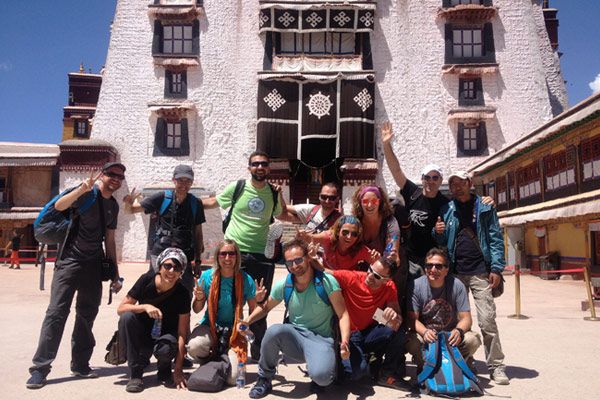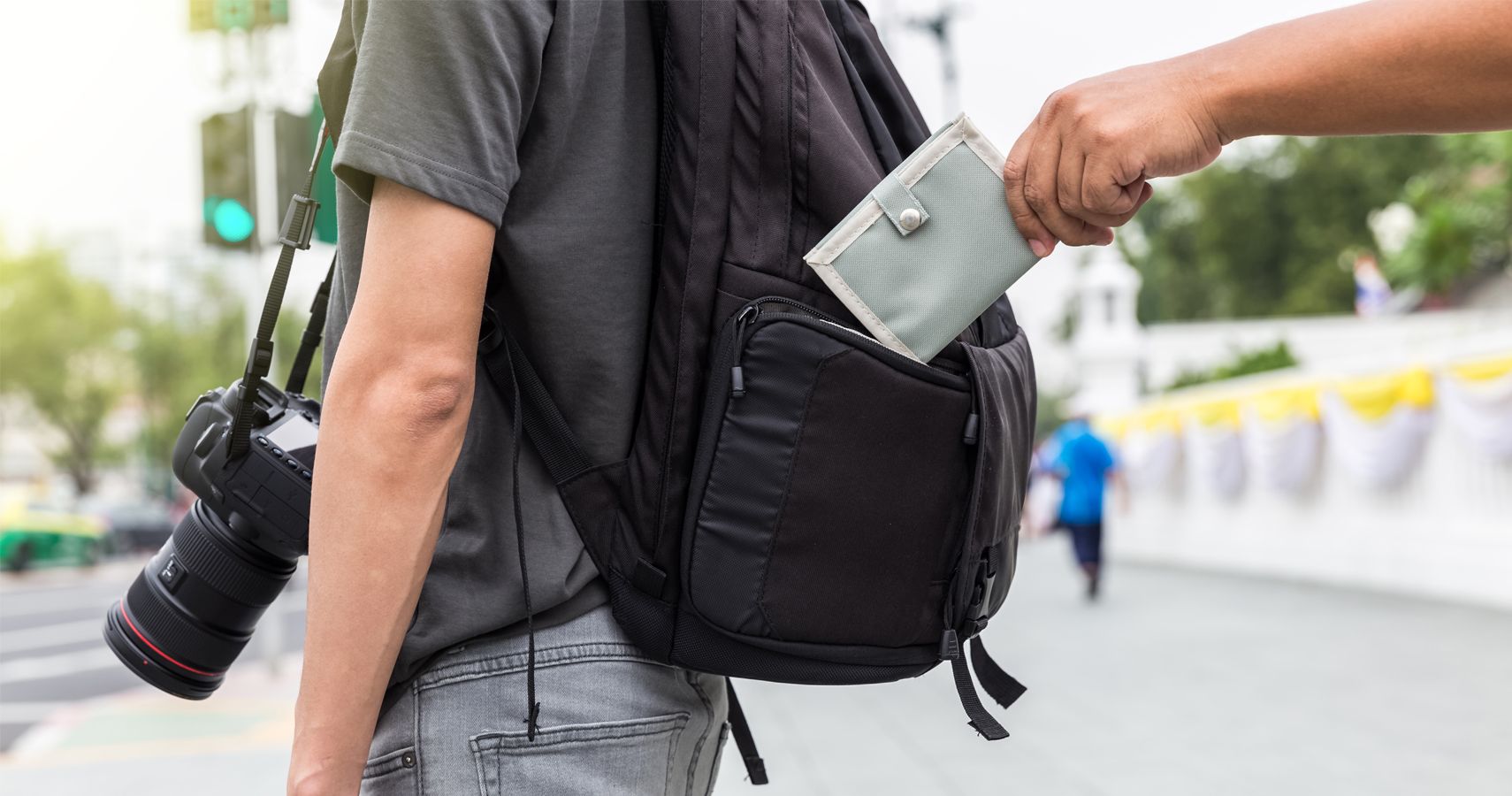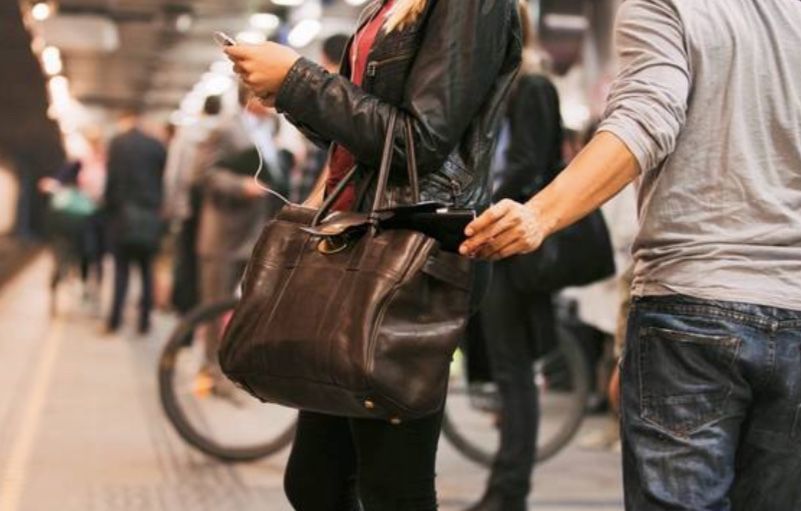Anyone who has traveled outside of their home country is given the same advice from their closest skeptic: be careful! There are precautions that should be taken, no matter where you travel, mostly due to the overwhelming amount of scams being pulled by people. These common travel scams are happening all over the world, and they're happening every day.
To help prepare you for your next adventure, here are the 10 of the most common travel scams and how you can avoid them.
RELATED: 25 Essential Tips For Solo Female Travelers
12 10. The Flirt
You're sitting at a bar, alone, when all of a sudden an overly-flirtatious local comes up to you to offer you some friendly banter. This scammer can work at it for just a few minutes up to a couple of hours, but ultimately, their goal is to distract you. Somehow you have made it obvious that you're a tourist and they know you're there to spend money. You'll buy them a drink or two, turn your back, and bam--they've disappeared and left you with the bill. Or worse, they will put something in your drink and rob you blind when you least expect it.
How To Avoid It: If you offer to pay for your fellow patron's drink, close out the bill right away so you can keep track of your expenses. Make sure your valuables are locked away in your room, and never, ever leave a drink unattended.
11 9. Pick Pocketing
Pickpocketing is probably the most common type of scam that travelers need to be wary of. Of course, you will need to have valuables such as your wallet and cell phone on you while you sightsee, but your blase attitude could end up being costly. People who steal from unsuspecting tourists' pockets are skillful at their trade. Sometimes they can even take your wallet out of your sealed purse.
How To Avoid It: Carry as few valuables as possible with you. Try not to carry any cash and always have a backup credit card. If you carry a purse, make sure all the compartments are closed from the inside out, and position it in front of your body at all times. If you only have your pockets, never keep anything in the back and continuously check to make sure your items are still intact.
10 8. Fake Police Officers
9

It doesn't take much to impersonate a police officer. Some scammers will even dress in plain clothes and just carry a badge to intimidate tourists. These fake police officers will ask for your wallet and your passport and will be gone before you have time to call the real police.
How To Avoid It: Never give your wallet to anyone while traveling. A true uniformed officer will not ask for your wallet or your passport. If they ask for identification, give them your driver's license or tell them your wallet is at the hotel and they will have to go back with you to get it. If they refuse, just walk away.
8 7. The Group Photo
7

You're in front of the Eiffel Tower when you realize a selfie just isn't going to cut it. If you need someone to take a group shot of you and your friends or family, read the situation carefully. You should be especially cautious if someone offers to take your photo with your expensive camera or phone without you even asking. Their goal is to take it, put enough distance between you, and then make a run for it with your pricey belongings.
RELATED: 24 Common USA Travel Tips That Are Actually Really Unhelpful
How To Avoid It: Try your best to get a feel for who you're handing your equipment to. These scammers come in all shapes and sizes, from children to women. Your best bet is to try to get a local employee to take your picture. Chances are, they won't risk their job for an extra cell phone.
6 6. Free Accessories
This happens a lot in the more "touristy" destinations. A vendor might approach you and offer you a "free" bracelet or some kind of accessory. Even if you politely decline, they may take it a step further by physically putting the bracelet around your wrist. Then they'll demand money or try to cause a scene by accusing you of stealing.
How To Avoid It: Pushy vendors will try their best to get you to buy something. Just don't walk away and don't make eye contact if you're not interested. Never let them put something on you physically, and try to remember that nothing is free.
5 5. The ATM Friend
If you're in a foreign country, you may need to use an ATM to get out some cash. No big deal, right? You know how ATMs work, even if the instructions are written in a foreign language. While at the ATM, a friendly local may offer to help you use the machine, letting you know which buttons to press. However, the real reason they are there is to pick up on your card and pin number so that they can later empty out your entire account.
How To Avoid It: Politely decline their services. If you truly need help navigating the ATM, keep your card number hidden and never put in your pin until they have stepped away. Even after they do so, use your hand to cover up your pin combination.
4 4. WiFi Hubs
WiFi Hubs are prime spots for hackers to get into your computer. If you're in a local spot and you see an unlocked WiFi connection, proceed with caution. Hackers will use this as bait to get into your personal phone or computer where they will have direct access to your online accounts and information.
RELATED: 25 Tips For Booking A Vacation At The Very Last Minute
How To Avoid It: Look out for signs for the official Wi-Fi connection wherever you're at. Most cafes, restaurants, or resting hubs will have specific Wi-Fi connections with the password available for easy use. You can also install a VPN which protects your computer against these type of hacks.
3 3. The Front Desk Call
If you ever get a phone call from the hotel you're staying at asking to confirm your credit card number, you're on the line with a scammer. They use this technique to copy your card information so they can have access into your account to use it as they wish.
How To Avoid It: Never give out your credit card number over the phone. Go directly to the front desk and see if there is an actual problem and deal with it face-to-face. Chances are, it was just a scammer, in which case you should block the number immediately.
2 2. Fake Tickets
This can happen in person or through the internet. If you're on vacation to go to a particular event, you will probably see people selling tickets right outside the venue. If you need extra tickets, don't buy it from these sellers. There might be legitimate merchants out there, but you never know which ones are which. Other scammers will try to sell you cheap theme park passes, bus or train tickets.
How To Avoid It: Just buy all tickets, whether they are for entertainment or transportation, through the proper retailer.
1 1. The Wrong Change
This one is a big one and can be done in a variety of ways. This is especially easy for vendors to do if you're not familiar with the country's currency. They'll give the wrong change or try to distract you by deliberately counting back your change slowly. They use this tact hoping that you will get impatient and just up your change and leave without making sure it's all there.
How To Avoid It: Familiarize yourself with the currency and always double check your change.









